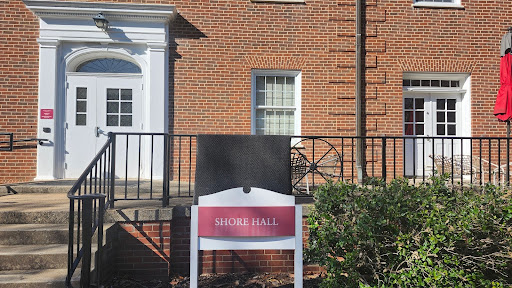With enrollment down by 366 students since 2010 and huge cuts to financial aid, Guilford has been doing its best to adjust to these hard economic times. One way Guilford is coping is by limiting the number of students who get approved for off campus housing.
“I think it’s unfair that because enrollment is down, I have to suffer the consequences,” said junior Courtney Morsberger. “I wanted to live off campus so it would be easier to take summer classes at the University of North Carolina at Greensboro. They didn’t care that I have to take summer classes at a different school due to the lack of summer classes Guilford offers.”
Students are approved to live off campus if they have certain financial hardships or medical needs, if they are commuting, or for a few various other exceptions. The school has approved 139 off campus housing applications and has currently stopped approval for the time being. Credit hours and seniority do not play into the decision.
“There are so few medical and disability accommodations that we can’t accommodate on campus,” said Vice President for Student Affairs and Dean of Students Aaron Fetrow. “We are trying to help those families in the highest amount of need.”
Junior Natalie Duvall is one of the students that got approved for off campus housing due to medical issues.
“The central air systems have been killer on my nonexistent immune system,” said Duvall in an email interview. “I’m most looking forward to having control of my own environment and actually being healthy on campus. Being able to take advantage of everything Guilford has to offer instead of being stuck in bed all day is going to be pretty awesome.”
There are 1,050 beds to fill throughout campus. The school counts on being 98–100 percent full in Fall 2013.
While other private schools around the area increased tuition by up to eight percent, Guilford has only increased by three. With this relatively small increase in tuition, it was critical that housing on campus was full.
“I don’t mind living on campus because I enjoy how easily accessible all my classes are,” said sophomore Avery Hill. “I think if rooms were nicer and cleaner, people would like living on campus.”
Living off campus is more affordable than paying for on campus housing. Many students are stuck living in on campus housing they cannot afford, which makes them more likely to leave Guilford as a result.
“The school is not going to get students’ money if they continue to force them to stay on campus,” said first-year Andrew McDonagh. “They will end up losing even more students.”
Other schools around the area have different requirements for off campus housing. Greensboro College allows students to live off campus if they are 21 or older, have senior status with 92 credits or more, or if they are commuting from a family member’s house within a 30 mile radius.
UNCG has no requirement to live on campus and students can live off campus at any time. Students are free to do so at any time. Assistant Director for Residence Life at UNCG Christopher Gregory believes that experiencing an off campus living environment does not add to the college experience.
“I think my college experience was enhanced by living on campus, being close to the university, and interacting with peers,” said Gregory in an email interview.
Campus Life continues to look at each case carefully in order to make the right decision for students and the school.
“Every year, we have said that students are not guaranteed to be approved to live off campus,” said Susanna Westberg, director of residence life. “We understand that students are frustrated because they have seen a trend from past years, but those have been the exception and not the rule.”












Lindsey Aldridge • May 2, 2013 at 6:11 pm
Living off campus was one of the best choices I made in my time at Guilford. At that time, though, on-campus housing was not provided for part-time students. I’m wondering if the line, “Credit hours and seniority do not play into the decision,” means that students don’t get off-campus assignments based on how many credit hours they have earned or how many they are actively taking. If it’s the latter, I’m shocked to find out that they are now forcing part-time students to live on campus. Perhaps it would be worth adding some clarity on this point?
Also, as a note, the picture with this story is the building that I lived in for a year and a half while living off campus; you can see my front door! I miss that—my first real apartment—a lot, so thank you for having this picture with this story. It made my day =)